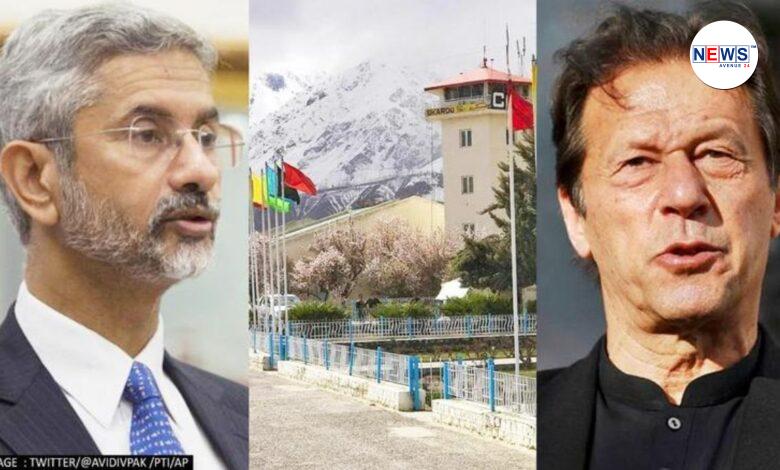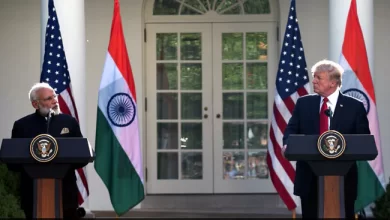
Pakistan’s move to start international flights at the Skardu airport in Gilgit-Baltistan – an illegally occupied Indian territory on Thursday drew the ire of Ministry of External Affairs, which dubbed it as an “interference” in India’s internal matter. The Pakistan Civil Aviation Authority declared that the airport’s initial operations will be conducted in Visual Flight Rules, i.e the aircraft shall operate only in clear weather.
In February 2020, Pakistan’s Aviation Minister Ghulam Sarwar Khan had announced the upgradation of the Skardu airport which entailed the construction of a new runway and a new terminal building etc.
Addressing a press briefing, MEA official spokesperson Arindam Bagchi remarked, “You talked about Gilgit Baltistan. I don’t want to talk about this in detail. You know our perspective on Pakistan-Occupied Kashmir (PoK). This is an interference in our internal matter. We don’t recognise this. But I won’t like to comment on one specific development. Our position on this is clear and consistent.”
Status of Gilgit-Baltistan
A part of the erstwhile princely state of Jammu and Kashmir, it was separated from Pakistan-occupied Kashmir in 1949 via the controversial Karachi agreement. Purportedly signed by Muslim Conference leaders with the Pakistan government, it was a clear violation of the UNSC resolutions as it altered the status quo of the territory before the potential plebiscite. Moreover, this agreement came in this public domain only via a 1993 judgment of the PoK High Court.
READ | Pakistan SC grants bail to PTM leader Wazir in hate speech case after party’s ‘power show’
The people of G-B got partial rights only in 2009 when the Pakistan Peoples Party government issued the Gilgit-Baltistan (Empowerment and Self-Governance) Order.
Though it created a separate legislature for the region with the first Assembly elections conducted in 2009, most powers were vested in the Gilgit-Baltistan Council headed by the Pakistan Prime Minister. While this order allowed the G-B Assembly to exclusively legislate on 61 subjects, the Gilgit-Baltistan Order of 2018 abolished this list.
Responding to Pakistan’s attempt to grant provincial status to G-B, the MEA had affirmed in September 2020, “Any action by Pakistan to alter the status of militarily occupied Gilgit-Baltistan has no legal basis whatsoever and is totally void ab initio. Our position has always been clear and consistent. The entire territories of the Union Territories of Jammu and Kashmir and Ladakh have been, are and would remain an integral part of India. Pakistan has no locus standi to comment on India’s internal matters”.
However, the Pakistan government has reportedly finalised a draft law to grant provincial status to the region.
News Credit: Republic World





